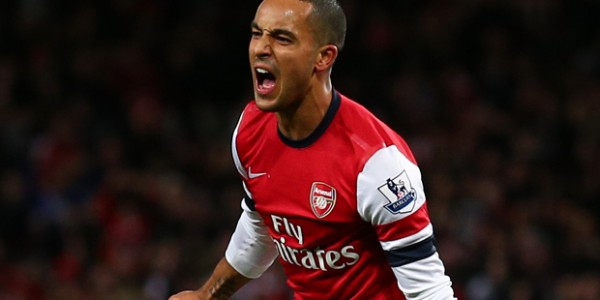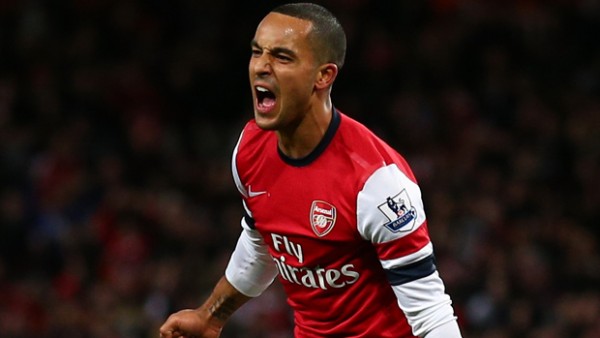When Arsenal signed Theo Walcott as a 16-year old wonderkid from Southampton, they expected him to be one of the best players in the world by the time these words are being written. However, another summer is almost over, and with it come the expectations of the speedy forward finally fulfilling the promise of his younger days.
Not that Walcott has done badly. He finally finished a season with a double-digit scoring production in the league, finishing with 14 Premier League goals, adding 12 assists to that. Despite continuing to spend a lot of time on the right wing, he was Arsenal’s most influential player when it came to actually producing goals.
If there was thing different about Arsenal last season compared to their usual shortcomings, it was the excitement and flair no longer being a part of their style. For all of those years of finishing third and fourth behind Manchester United, Chelsea and Manchester City, at least there was the style everyone was so proud of. If only they could have sorted their defending, things would much better, right?
Arsenal did look better on defense in the beginning and ending of last season, but all through the season, the famous passing sequences we were used to seeing from the gunners were gone. A lot more lumbering and exhausting style took over the team, making Walcott all that more important, as possession wasn’t as useful as it once was. When counter attacking, Walcott is one of the more dangerous players in Europe on the finishing end.
There were a few matches in which Walcott got a chance to play the target man, ending up scoring four of his goals. First and foremost – Walcott is a striker. Maybe he shouldn’t be a solitary target man in a 4-3-3 system or whatever it is Wenger insists on, but he’s much more dangerous when he plays in the middle. Maybe his new positioning should be something similar to what the Italians use on their national team (or with Juventus), as a supporting striker, who plays a bit wide but without real tactical constraints, joins the target man (who’ll probably be Giroud) to create a two-man front.
The question is, as usual, Arsene Wenger. For being a tactical genius and the man with a golden eye for talent, he has proven to be very inflexible in his tactics and his ways of recruiting players, not to mention the too rigid salary scale, or his insistence on missing out when it comes to the slightly more expensive and well prepared talent.
In all likelihood, Walcott won’t turn out to be the star he should have been for Arsenal and England. But becoming a 14-goals a season kind of player for several years is not a bad way to end up. A lot of it doesn’t just depend on what he does with the ball, but how Wenger decides to use, maybe finally giving the man he loves to isolate inefficiently on the wing a chance to show he belong in the middle, where he is at his most dangerous.


